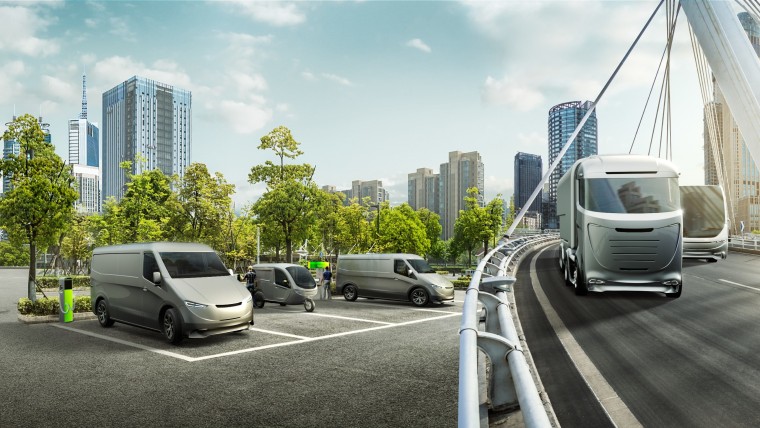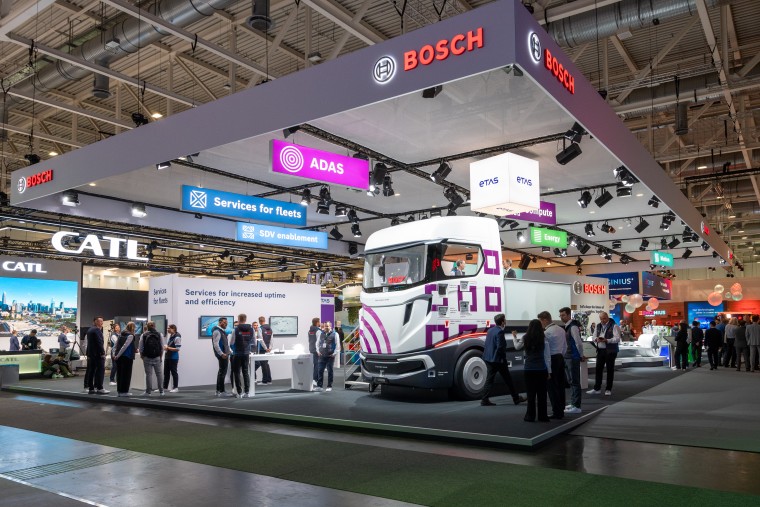
Bosch expands with software and technology for trucks and vans
London, September 16, 2024, (Oilandgaspress) ––Bosch wants to seize the huge opportunities now arising from the growth in global freight transport and the switch to alternative powertrain systems. To that end, the company will be reorganizing its commercial-vehicle business within the Mobility business sector. Starting January 2025, under the leadership of Jan-Oliver Röhrl, executive vice president for commercial vehicles and off-road, the company will pool important competencies in a new business unit, bringing together system development and product and portfolio management for trucks and off-highway applications. “We’re convinced that this new setup will offer benefits to our customers – and that we will collaborate with even greater success as a result. Together, we want to get commercial vehicles on the road even more efficiently and safely,” said Röhrl at IAA Transportation 2024.

To achieve this, Bosch is focusing on powertrain diversity and technology neutrality. According to internal forecasts, the company assumes that, globally, around 20 percent of all newly registered commercial vehicles heavier than six metric tons will have a battery-electric powertrain in 2030, while fuel cells will have a share of around 3 percent. By 2035, a good one in three trucks will have a battery on board, and one in ten will feature a fuel cell. At this point, the hydrogen engine will also be on the road, albeit in smaller numbers. One thing is clear: freight transport can go electric only if the proper infrastructure is in place. “We need a consistent and faster expansion of electric charging stations and hydrogen filling stations in Germany and Europe,” Heyn said.
As Bosch sees it, the various powertrain technologies aren’t in competition with each other – on the contrary: the variety allows manufacturers to decide on the optimum solution for each application. That means Bosch is not only further developing powertrain technologies for batteries, fuel cells, and hydrogen engines, but is also making modern combustion engines even more efficient. And especially in view of how big the existing vehicle fleet is, synthetic fuels can also play a major part in mitigating climate change.
With the move in the automotive industry toward software-defined mobility, commercial vehicles are also facing a paradigm shift. The growing number of connected services and solutions for fleet management alone makes it crucial for trucks and vans to be updatable, similar to the passenger car sector. Here, the golden rule is to have fewer vehicle computers and hence less complexity in the vehicle’s electrical/electronic architecture. Intelligence is currently distributed across several different computers, but in the future it will be grouped into just a few vehicle computers. Bosch supports manufacturers in the transition from hardware- to software-defined mobility, the commercial-vehicle business included, while offering a wide range of suitable software solutions and services.

Bosch’s digital service platform for logistics, called L.OS, pinpoints and addresses the specific challenges facing the transportation and logistics industry. The company collaborates in this area with Amazon Web Services, among others. At the heart of the software ecosystem for freight forwarders and carriers is a marketplace that offers centralized access to various providers’ digital solutions for all aspects of the logistics business – all in one seamless experience: driver, transport, and fleet management; route planning and parking; financial services and supply chain transparency.
Bosch connectivity solutions also help mobility and logistics service providers to use their vehicles as efficiently as possible and minimize downtimes. The technical basis for this is a Bosch control unit that can be retrofitted to any vehicle regardless of manufacturer, allowing the fleet operator to access its operating and diagnostic data, and thus enabling a wide range of data-based services. The Retrofit Efficiency module (remodul) function, for example, recognizes the route a truck is taking and slightly adjusts its speed in line with empirical values stored in a central database. This can reduce fuel consumption by up to 4 percent – an attractive cost advantage for fleet operators. Vehicle Health, in turn, records both standardized and manufacturer-specific error codes in the vehicle and evaluates them in the cloud. As a result, impending problems can be identified at an early stage and presented in an understandable way so that, for example, early servicing can be suggested. This significantly reduces the number of unexpected breakdowns, thus making it much easier for operators to plan.
Oil and gas press covers, Energy Monitor, Climate, Renewable, Wind, Biomass, Sustainability, Oil Price, LPG, Solar, Marine, Aviation, Fuel, Hydrogen, Electric ,EV, Gas,

